

7:30 pm IST - 10:00 pm IST
Past Event
Content from the Brookings Institution India Center is now archived. After seven years of an impactful partnership, as of September 11, 2020, Brookings India is now the Centre for Social and Economic Progress, an independent public policy institution based in India.
Event Report
By Shruti Godbole
Brookings India in partnership with FICCI organised a “Discussion on the Outcome of the U.S. Elections for India” on 11th November, 2016. The discussion featured opening remarks by Rajan Bharti Mittal, and a brief statement by the U.S. Ambassador to India Richard Verma. This was followed by two panel discussions. The first, on political and strategic relations, featured former Foreign Secretary Kanwal Sibal, Member of Parliament Shashi Tharoor, Ashok Malik of the Observer Research Foundation, former Indian Ambassador to the U.S. Arun Kumar Singh, and Dhruva Jaishankar of Brookings India. The second panel, on commercial and economic relations, featured, Daniel Ritter of K&L Gates, M.K. Venu of The Wire, Harsha V. Singh of Brookings India, and A. Didar Singh, Secretary-General of FICCI.
Rajan Bharti Mittal opened the discussion with a few remarks on some key issues in the India-U.S. relationship such as cooperation on terrorism, defence equipment procurement, nuclear cooperation, H1B visas etc. Mr. Mittal expressed hope that the U.S. would be supportive of India’s economic and strategic ambitions and its desire to play a greater role in world affairs. In his opening remarks, Ambassador Richard Verma also expressed hope and confidence that the current upward trajectory of relations between India and the U.S. will continue into the next administration under President Donald Trump. Ambassador Verma outlined some reasons for why this relationship is expected to endure and even strengthen in the years to come. Bipartisan consensus on the importance of the India-U.S. relationship; greater convergence on the big issues of the day; significant progress in key areas of cooperation and strong people-to-people ties will continue to bring the two countries together.
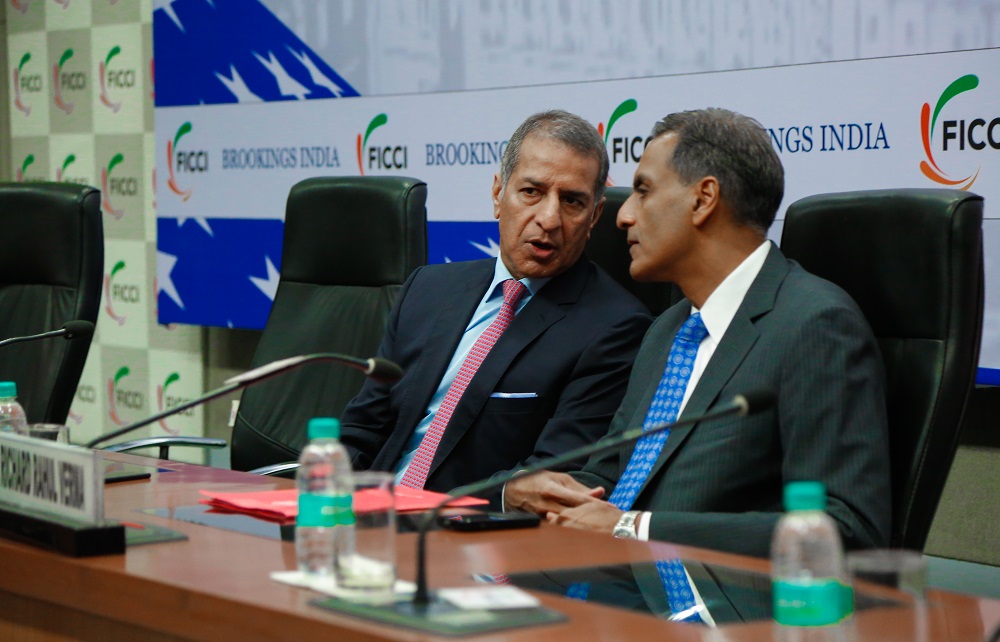
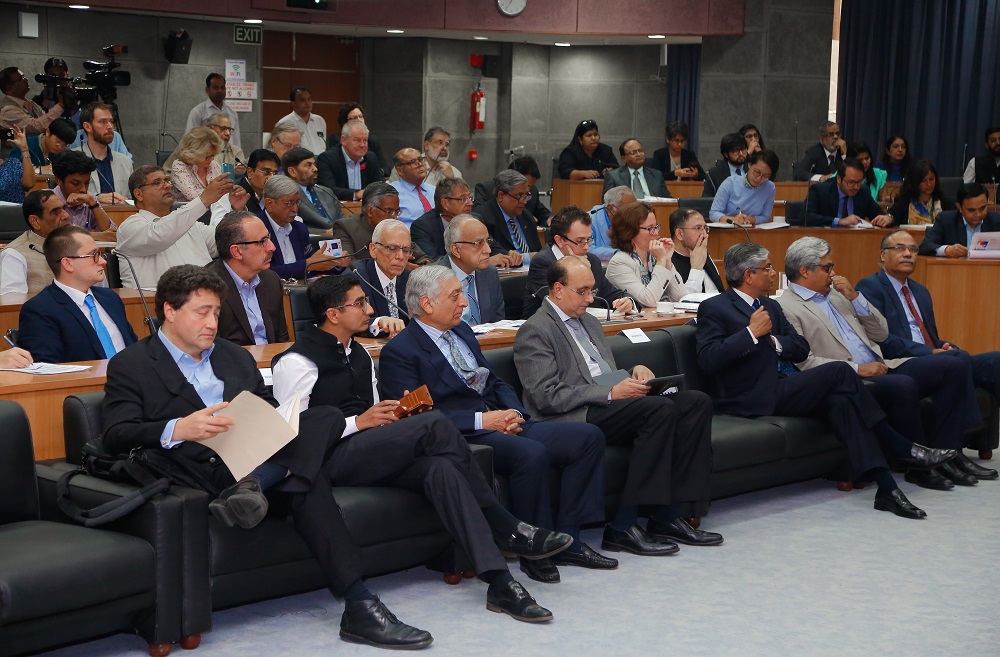
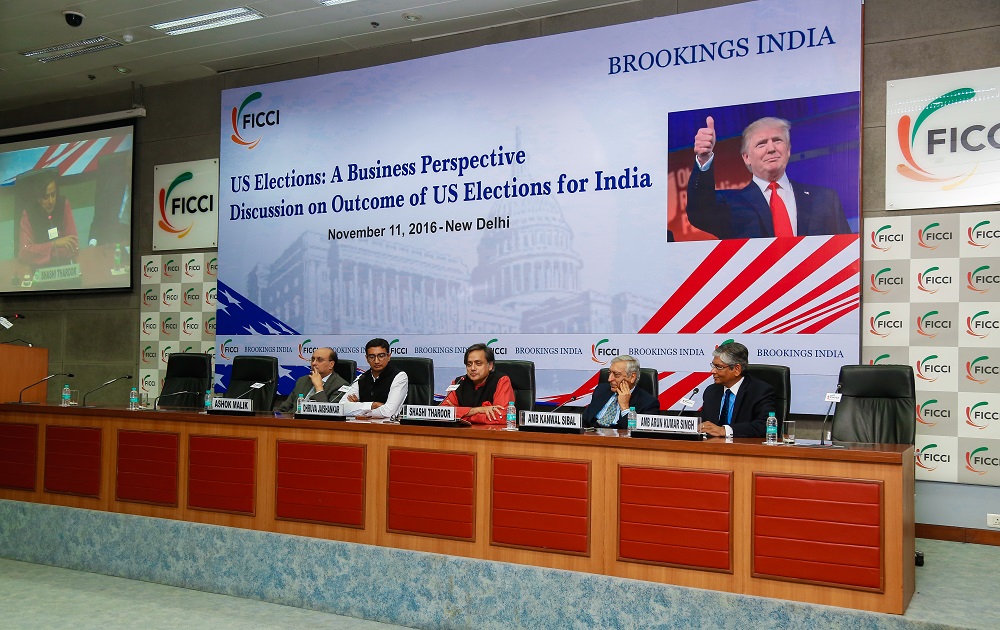
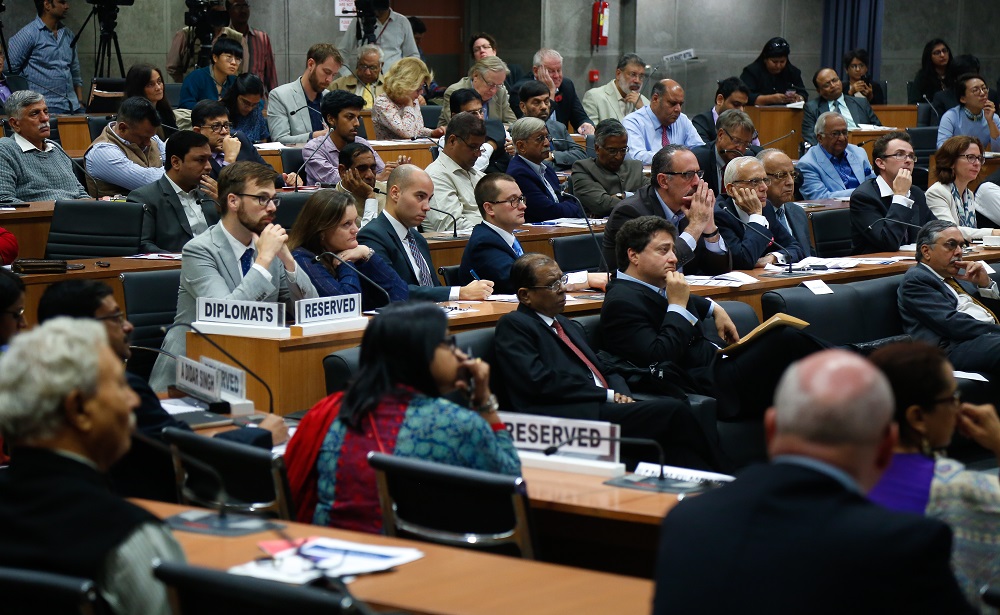

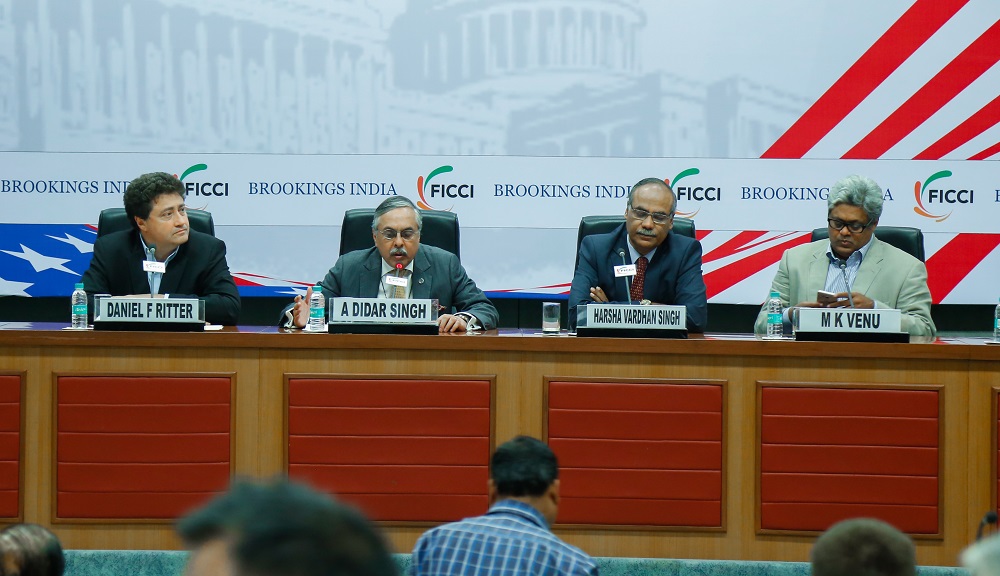
The first panel discussion was broadly based on the political and strategic relations between India and the U.S. and Donald Trump’s foreign policy leanings more broadly. During the campaign, Trump’s focus was primarily on domestic policy, with some foreign policy issues being addressed in that light. While Trump has been unclear about a specific policy on India, we can assess some of his campaign rhetoric for potential impact on India. With regard to the Asia-Pacific, Trump has threatened to be tough on China economically, resulting in a potential trade war with disastrous consequences for the rest of the world. He has been highly critical of the Trans-Pacific Partnership (TPP) agreement, which has strategic implications. His policies on the strategic aspects of the pivot to Asia are more unclear, although he is expected to continue reinforcing the naval component of U.S. presence in the region, while also encouraging countries like Japan and South Korea to nuclearize. This means that India might have to step-up its role in the region, both in economic and strategic terms. To India’s north, a thaw in U.S.-Russia relations in the Trump administration will have positive consequences for India since Russia has been getting suspicious of Indian intentions because of its close relationship with the U.S. On Pakistan, Trump has focused on the danger of nuclear weapons and the presence of terrorists targeting the U.S. homeland. However, he has also indicated that he will maintain the relationship with Pakistan and has refused to take sides on the India-Pakistan issue. If the U.S & Russia can partner in the Middle East, it can pave the way for positive gains in Afghanistan including for India interests in Afghanistan.
The second panel was broadly based on the commercial and economic relationship between the U.S. and India. As with Trump’s foreign policy stances, his economic and commercial policies are still uncertain. However in his campaign, Trump had indicated his opposition to TPP which might now be dead in its current form. However, TPP is also a trade-related instrument with strategic implications. For India, the death of TPP can mean renewed terms of negotiations for Regional Comprehensive Economic Partnership (RCEP), with possible positive or negative consequences. Chinese exchange rate policies, movement of persons and inward-flowing investments are some of the other issues that Trump is likely to deal with early on in his administration. Declaring China as a currency manipulator could ratchet up tensions between the two countries, resulting in multiple new non-tariff measures. While India will be partially hit by these measures, there will also be opportunities for India to exploit. Gauging from Trump’s statements, plurilateral agreements such as Free Trade Area of the Asia-Pacific (FTAAP), Trade in Services Agreement (TiSA) and Environmental Goods Agreements will face significant problems going forward. Fossil Fuels positions taken by G7 and G20 countries are also now in jeopardy. Trump also wants to relax some of the commitments made by President Obama on Climate Change in the multilateral fora, which can have significant consequences on the global movement to find climate change.
Another major area of focus for Trump’s campaign was immigration and job creation within the U.S. He is expected to be much tougher on the H1B visas issue. However, there is hope that he will concentrate more on mass immigration of low-skilled labour from China and Mexico in particular, and by implication, will be less concerned about Indian high-skilled labour since it contributes substantially to the American economy.
In conclusion, Trump’s foreign policy towards India and even the rest of the world at large is still quite uncertain. However, precisely because Trump’s policy on India is still uncertain, there is opportunity for the Indian government and businesses to engage with the Trump administration on issues of importance and influence the formation of policy. Beyond that, how the Trump presidency unfolds will partly depend on whether his populist campaign rhetoric actually translates into governance. Trump’s own personality as well as his Cabinet appointments will also be crucial in driving both his domestic and foreign policy, since Trump is believed to have minimal expertise in the field of foreign policy himself.
Shobit Manchanda, a research intern at Brookings India, contributed to this report.
Like other products of the Brookings Institution India Center, this article is intended to contribute to discussion and stimulate debate on important issues. The views are of the author(s) and discussants(s). Brookings India does not have any institutional views.
Event Announcement
On Tuesday, the United States chose a new president after a long and unprecedented race to the White House. Given the enormous stakes for India-U.S. commercial relations, trade, market access, outsourcing, and strategic relations, the run-up to the U.S. presidential elections caught the imagination of observers in India, across a wide spectrum of politics, business, and intelligentsia.
In view of this pervasive interest, Brookings India, in partnership with FICCI, organised a “Discussion on the Outcome of the U.S. Elections for India” on 11th November, 2016. The discussion featured opening remarks by vice chairman and managing director of Bharti Enterprises, Rajan Bharti Mittal, with U.S. Ambassador to India Richard Verma invited to give a brief statement.
This was followed by two panel discussions. The first, on political and strategic relations, will feature former Foreign Secretary Kanwal Sibal, Member of Parliament Shashi Tharoor, Ashok Malik of the Observer Research Foundation, and Dhruva Jaishankar of Brookings India. The second panel, on commercial and economic relations, featured MK Venu of The Wire, Daniel Ritter of K&L Gates, Harsha V. Singh of Brookings India, and Didar Singh, Secretary-General of FICCI. These experts discussed the outcome of the race and what it holds for the future of India-U.S. relations.

Rahul Tongia, Anurag Sehgal, Puneet Kamboj
2020
Online Only
3:00 am - 4:40 am IST

Saneet Chakradeo
August 18, 2020